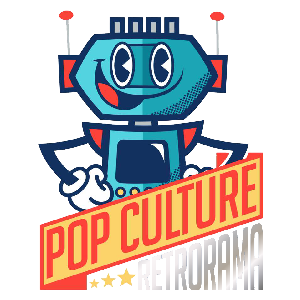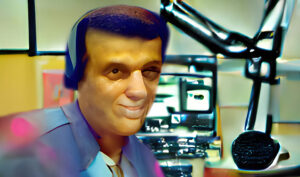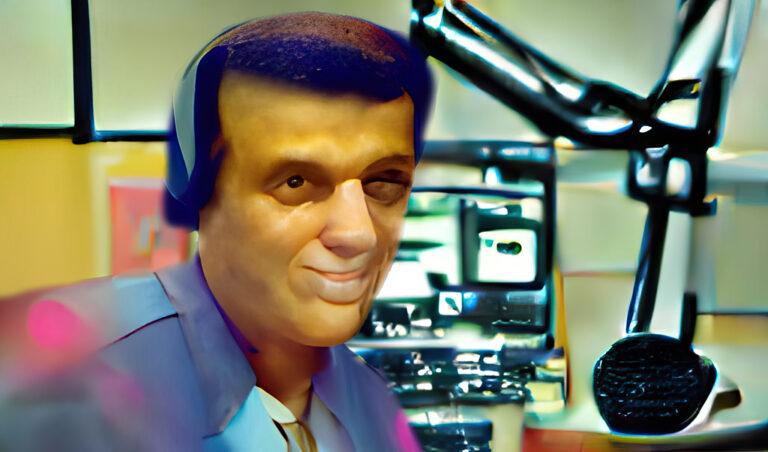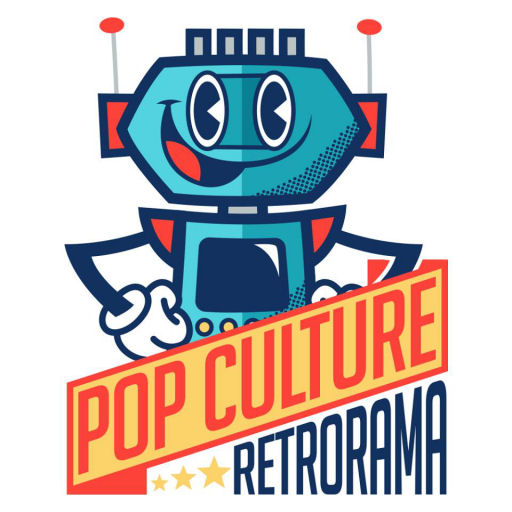It’s hard to pull off an original police drama. It’s hard to pull off an original science fiction series. This is the story of a show that attempted to do both.
Space police. Everyone foresees the need for them, and numerous writers in numerous media have tried to extrapolate the distant future of crimefighting, from Minority Report to Gerry Anderson to David E. Kelley.
The TV attempt that may have gotten it closest to right appeared and disappeared on BBC in the summer of 1987.
The late ’80s were not fertile ground for new sci-fi at the BBC. Following the behind-the-scenes debacles that marred Colin Baker’s stint as Doctor Who, Baker had been unfairly scapegoated and dismissed from the role; his successor, Sylvester McCoy, did not have an easy job ahead of him in trying to improve that show’s fortunes. Red Dwarf was in development for an early 1988 premiere, but it wasn’t drama; it was a comedy entrusted to the BBC’s Light Entertainment department.

And then there was Star Cops. Devised by former Blake’s 7 script editor Chris Boucher, it was an attempt to take a serious look at what crimes might lay ahead in the near future – a few decades down the road – that are nearly unimaginable now, and how a small but dedicated group of law enforcement officers whose jurisdiction reached at least as far as the moon would deal with those crimes (and the criminals perpetrating them).
Boucher definitely had the chops for this oft-tried and oft-failed collision of genres. By many accounts, Boucher was the writer most responsible for the BBC’s storied late ’70s/early ’80s space opera Blake’s 7; series creator Terry Nation would frequently turn in scripts that were more like outlines, which Boucher frequently had to “fill out” with actual dialogue and character interactions. But Boucher had also worked on two popular UK crime dramas, Bergerac and Shoestring, so he had ample experience working crime and crimefighting into his stories.

Populating the show was a variety of characters, including middle-aged, straight-arrow police veteran Nathan Spring, played by David Calder. Calder wasn’t a typical leading man; far from being a spandex-clad space hero, Calder’s character was balding, had a bit of a paunch, and was really looking forward to an earthbound retirement. The pilot episode’s seemingly uncrackable case (and rising body count) changes Spring’s mind, and sets his career on a trajectory for deep space.
Backing Spring up was Colin Devis (Trevor Cooper), an abrasive, sexist, racist cop whose personality had nearly cost him his badge numerous times, but whose crimefighting instincts had kept him from ever being relieved of it. David Theroux, a street-smart NYPD veteran, was played by African-American actor Erick Ray Evans (1945-1999), who emigrated to the UK in the early ’80. Australian actress Linda Newton played Pal Kenzy, who, like Devis, had a personality often at odds with her career momentum. None of the Star Cops were perfect, and sometimes they barely worked as a unit, part of Boucher’s attempt to portray a grittier, more realistic future police force.

But Boucher made, by his own admission, one major mistake in selling Star Cops to the BBC: he wanted to be the show’s writer, not its producer. The role of producer fell to a producer already on the BBC payroll, Evegny Gridneff, who had very different ideas from any plans Boucher might be developing for his own show. Gridneff added characters that weren’t part of Boucher’s plans (over the objections of the show’s creator), and made other unexpected executive decisions, such as commissioning Justin Hayward of the Moody Blues to write and perform a theme song that seemed only tenuously related to the show.
BBC Music was able to market a single of Hayward’s Tony-Visconti-produced song, which sounded an awful lot like an outtake from the Moody Blues’ 1988 Sur La Mer album, but beyond the second episode – which brutally dispensed with the character of Nathan Spring’s girlfriend – the song didn’t really connect to the show at any two points without that relationship dynamic. Philip Martin (creator and writer of the stylish ’70s UK crime series Gangsters), and John Collee (future writer of Master And Commander: The Far Side Of The World and Happy Feet) were recruited to write scripts alongside Boucher. (Like Boucher, who had written a couple of well-regarded Tom Baker-era Doctor Who stories, including the one which introduced popular companion Leela, Martin had written for Doctor Who, but much more recently, introducing the slimy recurring villain Sil.)
Star Cops “exterior” space scenes were actually of a very high-quality for their era, created by the same in-house BBC effects team that had wowed audiences with the season-opening shot of a massive Time Lord space station for 1986’s Doctor Who season premiere; the same team would go on to create the above-average slow flybys of Red Dwarf for that series. Apollo and Skylab-era NASA astronauts served as technical advisors to the show, offering suggestions about zero-gravity scenes in particular.
Star Cops only lasted nine episodes.

The battle behind the scenes for control over the direction of the show took their toll, noticed by cast and crew alike. Boucher was a big fan of director Graeme Harper, who had made a name for himself directing two much-loved, hard-edged Doctor Who stories in recent years (one of which was Peter Davison’s final TARDIS trip); Harper favored darker, more realistic lighting, which worked well on a film but was a challenge for the BBC’s policy of shooting studio scenes on video. By contrast, Evegny Gridneff favored director Christopher Baker, who tended to light scenes much more brightly, creating a visual feel for Star Cops that swung wildly from one extreme to the other on a week-by-week basis.
Gridneff had also injected an entirely new regular character, Dr. Anna Shoun, played by Sayo Inaba, over Boucher’s objections. In an interview in the fantastic early 2000s series The Cult Of…, David Calder talks about the tension between the creator of the show and the man entrusted with shepherding the show to air as being palpable.

Even though the final episode of the first season dangles tantalizing hints of the Star Cops needing to extend their reach as far as Mars, Star Cops would not be continuing. Boucher asked the BBC to assign a new producer to the show, and voluntarily brought his own creation to an end when the BBC wouldn’t budge. Star Cops could have become a new science fiction franchise for the BBC – one could envision new branches and new spinoffs appearing as the human race continued to explore and colonize (and commit crimes in) the entire solar system, but it was not to be.
Other shows have attempted to mine the same subject matter with wildly varying results; at one point, David E. Kelley was deep into developing a series for American television with a somewhat similar idea, but that show never made it to air. Gerry Anderson took a much more camp approach to the subject matter with a 1989 pilot called Space Police, which underwent massive reworking before finally reaching airwaves as the internationally syndicated series Space Precinct in the early ’90s, though that show’s odd tone kept it from surviving the early ’90s syndicated sci-fi glut that followed the success of Star Trek: The Next Generation. No matter who has tried their hand at the concept, nothing has appeared that was as smart or as instantly addictive as Star Cops.
Big Finish Productions has, thankfully, called the Star Cops back into action in audio form in this century, reuniting as many of the surviving cast members as possible, and adding new recruits to their ranks, and fulfilling the promise of the original series’ hints that the Star Cops would be patrolling Mars. (Big Finish did not, however, adopt the much-derided Justin Hayward theme music, leaving it to compete with the theme from Star Trek: Enterprise for the coveted title of most-misunderstood sci-fi TV theme song.)
A complete guide to Star Cops can naturally be found at the author’s site, theLogBook.com. The first episode of Star Cops was also covered in his Retrogram podcast.




+ There are no comments
Add yours